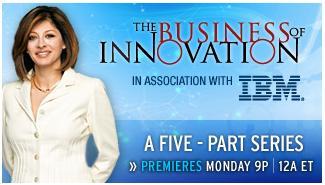A recent New Yorker had another excellent piece by Malcolm Gladwell, this time about simultaneous invention, the core topic of chapter 5 of The Myths of Innovation. Much of his coverage is spot on – we underestimate how many inventions and discoveries were achieved independently, despite how specific and isolated the credit we give often is.
It’s an excellent article and I recommend it. One highlight for me is this:
Stigler’s Law: No scientific discovery is named after its original discoverer.
A law which Gladwell points out also applies to Stigler’s law :)
My critique begins with his coverage of Nathan Myhrvold and his company, Intellectual ventures (IV). A firm dedicated to creating what they call “an invention economy”. He never asks any questions about the conflicts between a patent system designed centuries ago to protect individual inventors, and a well-funded company created, as best I can tell, to dominate entire domains of Intellectual property through massive patent fillings and then selling them. Who is best served by “an invention economy’?
It’s not his job to raise every question – that’s my job as the reader. But since the article focuses on Myhrvold & IV, it literally begins and ends with him, the fact that he never questions his company’s place in all this paints them as a positive evolution in how invention will be done. They are loosely portrayed as heroes, an idea which I couldn’t help but find personally depressing – Not entire sure why yet, but I did feel that way.
But more important is his overstatement of artistic creations. He writes:
A work of artistic genius is singular, and all the arguments over calculus, the accusations back and forth between the Bell and the Gray camps, and our persistent inability to come to terms with the existence of multiples are the result of our misplaced desire to impose the paradigm of artistic invention on a world where it doesn’t belong.
Shakespeare owned Hamlet because he created him, as none other before or since could. Alexander Graham Bell owned the telephone only because his patent application landed on the examiner’s desk a few hours before Gray’s. The first kind of creation was sui generis; the second could be re-created in a warehouse outside Seattle.
If you talk to most writers or artists they’ll tell you about specific influences for specific pieces. Picasso said “bad artists borrow, great artists steal”. We’re pretty sure Shakespeare based Hamlet, and many of his plays, on stories and plays he’d heard before. Reading Joseph Campell or Karen Armstrong on mythology reveals the incestuous nature of stories: they breed like rabbits and steal like thieves, and to claim any creative work as Sui generis (means, roughly, something uncategorizable) usually means there’s a kind of ignorance at work about that particular kind of art, or a lack of imagination about what a category is.
And as a kicker, what is one to say about amazing song covers, Like Johnny Cash’s cover of the Nine Inch nails song “hurt”? The fact that an idea can be both deriverative and creative means our definitions aren’t that good (For reference, Cash’s version – you really should see this).
Michelangelo’s David and Picasso’s Guernica are masterpieces, but an analysis of these works by people in the field can point out influences, progressions, and connections to other works the creator knew of or was deliberately trying to emulate. Sometimes, like simultaneous invention, artists pursue similar ideas at the same time: they’re called artistic movements. It’s not the same as simultaneous invention, but it’s close enough. I’ve studied art for years and I still have trouble telling Picassos from Braques, despite works by both being considered masterpieces.
I totally grant there are differences between artistic creation and engineering invention. And Gladwell’s piece had me thinking about them for the better part of a plane flight, a gift which I’m thankful for. But his cut at the differences isn’t quite right.

